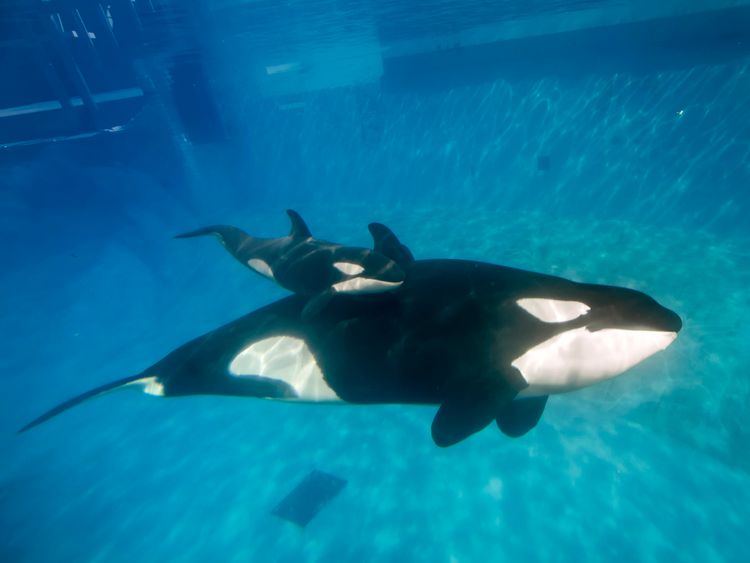Half of the earth's killer whale population could be destroyed in decades by toxic chemicals being dumped in oceans, scientists warn.
Polychlorinated biphenyls (PCBs) previously used to make electrical parts and plastics are still highly prevalent in some parts of the ocean, despite them being banned by most countries.
Killer whales accumulate the toxic chemicals when they eat seals and large fish that have ingested them.
Now a global team of experts, including scientists from the Zoological Society of London (ZSL), are warning the current toxic concentrations could lead to destruction of 50% of the world's orca populations in the next 30-50 years.
Their findings, published in journal Science, saw declines in the number of killer whales in 10 out of the 19 populations examined.
Those in heavily contaminated waters, including around the UK, Brazil and the Strait of Gibraltar, were at particular risk and newborns were rarely seen in these areas.
Despite most nations banning the pollutant over 30 years ago, "the world's killer whales illustrate the troubling persistence of this chemical class", the authors wrote.
Lead researcher Jean-Pierre Desforges, from Aarhus University, said the findings were "surprising".
"As the effects have been recognised for more than 50 years, it is frightening to see that the models predict a high risk of population collapse in these areas within a period of 30 to 40 years," he said.
Fewer than 10 killer whales are estimated to inhabit the waters around the British Isles, the study found.
Killer whales have some of the highest levels of PCBs in their tissue, and mother orcas can pass on the toxins to their calves through their milk.

Researchers have measured PCB levels as high as 1,300 milligrams per kilogramme in the fat of killer whales, with previous studies finding that just 50 milligrams can lead to infertility and immune system damage in some animals.
PCBs, which decompose slowly in the environment, were banned in Britain in 1981 and several other nations in the 1970s and 1980s.
More than 90 countries promised to ban use of the chemicals and dispose of existing reserves under the Stockholm Convention in 2004.
More from UK
A spokeswoman for the Department for Environment, Food and Rural Affairs, said: "The UK is a world leader in protecting marine life and we banned polychlorinated biphenyls over 30 years ago.
"We are working to ensure any legacy equipment containing PCBs is safely disposed of and will continue to press other countries to join global efforts to remove these chemicals from the marine environment."
[contf] [contfnew] 
Sky News
[contfnewc] [contfnewc]







